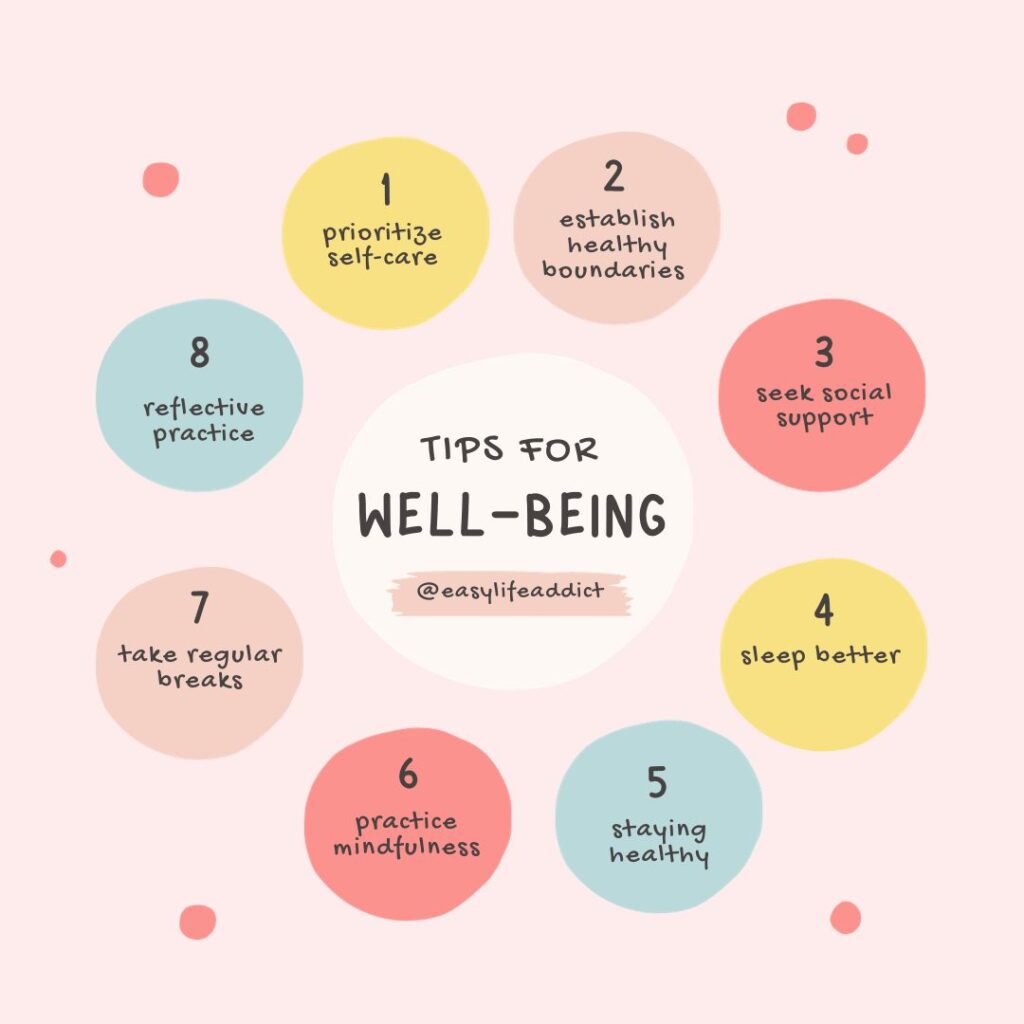8 Signs You Are Mentally Exhausted!
Are you feeling utterly exhausted but unable to ‘switch off’? Feeling overwhelmed with a constant level of stress, not able to find the energy or motivation you need to get through the day?
You could be experiencing mental exhaustion. Mental exhaustion is an all-too-common state that demands so much from us daily, especially in our modern world. So, if this sounds like something you’re dealing with now, take comfort. It’s normal.
To help you recognise and combat mental fatigue, we’ve outlined eight telltale signs you are mentally exhausted and what you can do about it so you don’t constantly operate at your mental breaking point. So, keep reading if you’re feeling overwhelmed and stressed out with no end in sight! We hope these tips will guide you towards establishing healthier habits for better mental well-being.
This post may contain affiliate links. That means that if you click on a link and purchase something I recommend, I will receive a small commission at no extra cost to you. As an Amazon Associate, I earn from qualifying purchases. This helps keep my website up and running and is very appreciated. Thank you for your support! You can read my full disclosure policy here.
What is Mental Exhaustion?
Mental exhaustion, also known as mental fatigue, is when one experiences ongoing feelings of tiredness, weakness, and lack of motivation. It is typically the result of prolonged periods of high stress, emotional trauma, or excessive mental activity.
Unlike physical exhaustion, which is often alleviated by rest and sleep, mental exhaustion can persist despite physical rest. Symptoms can range from mild, such as forgetfulness and difficulty concentrating, to severe, such as depression and anxiety. If left unchecked, it can negatively impact productivity, relationships, and overall quality of life. Therefore, it is essential to recognise the signs of mental exhaustion and take steps to combat it.
8 Signs You are Mentally Exhausted!

1. You Can’t Sleep
Are you tossing and turning at night, unable to drift into a peaceful slumber? It could be a sign that you are mentally exhausted.
When our minds are constantly racing, and we find ourselves overwhelmed with stress and anxiety, it can take a toll on our sleep patterns. Difficulty falling asleep, waking up frequently throughout the night, or simply feeling unrested even after a whole night’s sleep are all common symptoms of mental exhaustion.
Taking steps to manage your stress levels and prioritise self-care can go a long way in improving your sleep and overall mental well-being. Remember, a good night’s rest is essential for taking on the challenges of each day.
2. You are Easily Irritated
Have you ever found yourself lashing out at others for no apparent reason? Perhaps you feel like your patience has worn thin, and even the smallest things irritate you.
One of the common symptoms of mental exhaustion is being easily irritable. When we’re overworked, overwhelmed, and stressed, our emotional regulation begins to suffer. Our patience muscles become fatigued, and we lose the ability to handle stress gracefully.
If you find yourself in this situation, it’s vital to acknowledge your feelings and take the necessary steps to restore balance to your life. This could mean taking a mental health day, practising self-care, or finding a way to delegate tasks that are causing you undue stress. Remember, it’s okay to ask for help. You don’t have to go through this alone.
3. Constantly Feeling Tired
Do you often feel tired, even after sleeping for hours? This could be a symptom of mental exhaustion.
When we are mentally exhausted, our brain works overtime, leaving us with little energy for the rest of our body. This can make even the most minor tasks seem complicated, and we need help finding the motivation to tackle them. However, it’s essential to recognise that feeling tired all the time doesn’t necessarily mean that you’re lazy or not trying hard enough.
Mental exhaustion is a real phenomenon that many people experience, and there are ways to manage and overcome it. By taking small steps, such as prioritising self-care and setting realistic goals, you can regain energy and start feeling like your old self again.
4. Lack of Motivation
Have you ever struggled to get out of bed in the morning? Or you can’t muster up the energy to complete even the simplest tasks. These feelings of apathy and lack of motivation are common symptoms of mental exhaustion.
When mentally burned out, our drive and enthusiasm for life can take a serious hit. It may seem difficult to overcome this state, but it’s important to remember that recovery is possible. By addressing the root causes of your exhaustion and seeking support from loved ones or professionals, you can work towards regaining your motivation and finding joy in the things that once brought you happiness.
5. Emotional Detachment
Being mentally exhausted can take a toll on every aspect of your life, and one common symptom of this state is emotional detachment.
It can feel like you’re watching your life unfold through a foggy window, unable to connect with your emotions or those around you. Even things that used to bring you joy may not spark any emotion, and that’s a surefire sign that something’s not right.
If you’re feeling emotionally cut off, know that you’re not alone. It’s a difficult state to be in, but there are steps you can take to heal and work towards regaining a solid connection with yourself and others.
6. Increased Anxiety
It’s no secret that being mentally exhausted can take a toll on our bodies. One of the most common symptoms of this is increased anxiety and panic attacks.
When our minds run on overdrive for extended periods, it’s easy to feel overwhelmed, uneasy, and on edge. Increased anxiety can manifest as constant worry, fear, and negative thinking patterns. Panic attacks can be incredibly distressing and can come out of nowhere, causing physical symptoms like a racing heart, sweating, shaking, and shortness of breath.
The good news is there are ways to combat these symptoms and support mental wellness. By practising self-care, seeking counselling or therapy, and engaging in activities promoting relaxation and stress reduction, we can help our minds recover from prolonged mental exhaustion. Remember, caring for our mental health is as important as our physical health and well-being.
7. Weakened Immunity
Feeling mentally drained can take a toll on your mind and body. One common symptom of mental exhaustion is weakened immunity.
It may seem strange that something affecting your mind can affect your body’s ability to fight off illnesses, but it’s true. When you’re under chronic stress, your body produces cortisol, which can suppress your immune system.
This can make you more susceptible to getting sick and may cause you to have more severe symptoms when you do. That’s why it’s important to take care of your mental and physical health so that you can feel your best in all aspects of life.
8. Emotional
Have you ever found yourself on the verge of tears for no apparent reason? Maybe your emotions are all over the place, or you could cry at the drop of a hat.
It’s no secret that mental exhaustion can come with a whole host of symptoms, and crying is one of them. Feeling emotionally drained can cause your body to react unexpectedly; tears might indicate your brain is overwhelmed.
But it’s important to remember that crying isn’t a sign of weakness, and it’s okay to let those emotions out when needed. So, if you reach for the tissues more often than usual, take a deep breath and don’t be too hard on yourself. Remember, it’s okay not to be OK; seeking help is a sign of strength, not weakness.
What Causes Mental Exhaustion?
Excessive Workload – One of the leading causes of mental exhaustion is an excessive workload. This can be due to long work hours, too many responsibilities, or constantly meeting tight deadlines.
Unrealistic Expectations – Another common cause of mental exhaustion is having unrealistic expectations for yourself. Whether you pressure yourself to always be perfect or constantly push yourself to do more, these high expectations can be mentally draining and unsustainable.
Lack Of Social Support – A strong support system is crucial for maintaining good mental health. When we feel like we have no one to turn to or share our struggles with, it can lead to feelings of isolation and loneliness.
Toxic Environments – Working or living in a toxic environment can also contribute to mental exhaustion. Constant negativity, conflict, and unhealthy relationships can all affect our emotional well-being.
Not looking after yourself – Taking care of yourself physically and mentally is essential. Neglecting self-care can lead to burnout and make us more susceptible to mental exhaustion. This includes getting enough sleep, eating well, and engaging in activities that bring us joy and relaxation.
Chronic Stress – Long-term stress can significantly impact our mental and physical health. When we’re constantly in a state of stress, our bodies produce high cortisol levels, which can lead to exhaustion and other health problems.
Ways to Overcome Mental Exhaustion

Prioritise Self-Care – Practicing self-care is vital in overcoming mental exhaustion. Engage in relaxing and rejuvenating activities, such as reading, walking, yoga, or simply spending time in nature.
Establish Healthy Boundaries – Avoid burnout by setting healthy boundaries in your personal and professional life. Learn to say ‘no’ and delegate tasks when necessary.
Seek Social Support – A strong support system is highly beneficial for mental health. Share your feelings with friends, family, or a mental health professional.
Sleep Well – Quality sleep is integral to healing from mental exhaustion. Create a regular sleep schedule and cultivate a relaxing night-time routine.
Healthy Eating – Consuming a balanced diet can go a long way in reducing mental fatigue. Try to incorporate fruits, vegetables, and lean proteins into your meals.
Mindfulness Practice – Mindfulness exercises like meditation and deep breathing can help reduce stress and promote mental calmness.
Take Breaks – Taking breaks throughout the day is essential, especially when you’re feeling overwhelmed. Step away from your work and engage in a different activity, or go for a walk.
Exercise Regularly – Exercise benefits physical health and positively affects mental well-being. Find an exercise routine that works for you and stick to it.
Reflect and Reassess – Take time to reflect on your current lifestyle and make necessary changes to reduce mental exhaustion. Reassessing your priorities can also help you manage stress levels.
Professional Help – If your mental exhaustion continues, reaching out to a mental health professional can be very helpful. They can provide tools and strategies to manage and overcome mental fatigue.
Additional Tips for Maintaining Mental Health:
- Practice gratitude daily by acknowledging the things you are thankful for
- Engage in activities that bring joy and meaning to your life
- Surround yourself with positive and supportive people
- Set boundaries and learn to say no when needed
- Take time for self-care activities such as reading, journaling, or taking a relaxing bath
- Get enough sleep and establish a consistent sleep schedule
- Limit screen time and disconnect from technology at least an hour before bedtime
- Seek out therapy or counselling for ongoing support
Remember to be patient and kind to yourself; mental health is a journey, and it’s okay to have setbacks. Overall, prioritising self-care and making small changes in daily routine can go a long way in maintaining mental well-being and preventing mental exhaustion.
Remember to listen to your mind and body and make adjustments as needed. With a proactive approach, it is possible to overcome and prevent mental exhaustion for a healthier and happier life. So, let’s take care of ourselves and each other because mental health matters! Keep learning, growing, and thriving!
Remember to check out our related resources for more tips and guidance on this important topic. Take control of your mental health and embrace a brighter future!
Thanks so much for stopping by; I appreciate everyone who takes the time to read and make it to the end! I have lots of exciting new content in the next few weeks, so make sure you pop back to catch up!









